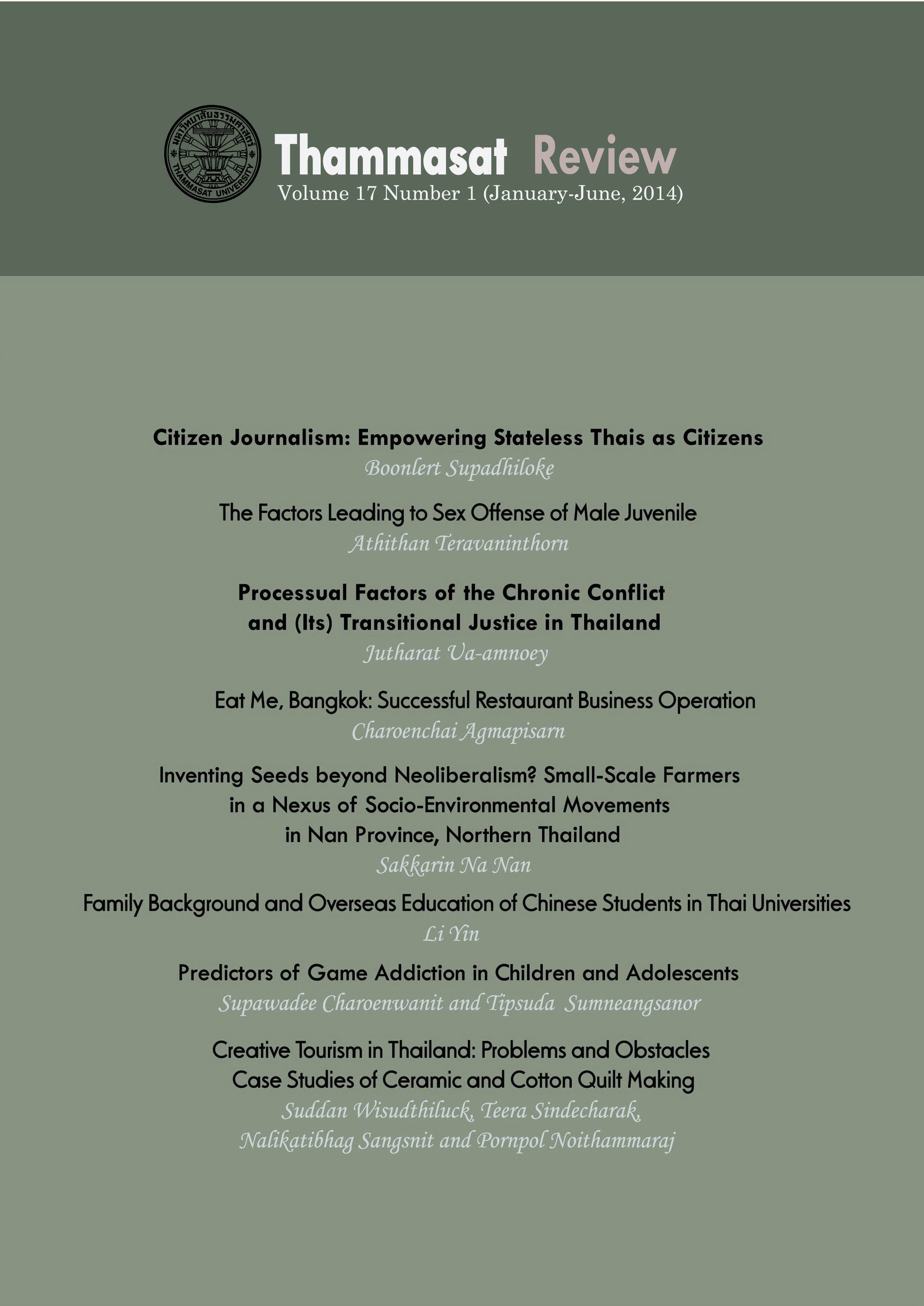Citizen Journalism: Empowering Stateless Thais as Citizens
Abstract
This case study illustrates how the first public service broadcasting in Thailand, named Thai PBS, has incorporated the practice of citizen journalism as a forum for public participation to empower a group of Thai diaspora to regain their citizenship. Following Rosen’s definition of citizen journalism as “the people formerly known as the audience” employing the press tools to inform one another, the study is based on document analysis, personal observation, and interview with key informants and program monitoring. The diaspora in this case refers to descendants of the Thai ancestors who used to live in territories occupied by British-ruled Burma (now Myanmar) and French-ruled Cambodia as a consequence of the territorial demarcation over a century ago. Thousands of Thai descendants later moved back to Thailand and were treated as stateless people without any legal rights in their motherland. After a decade of an uphill legal struggle against ethnic and legal discrimination, a group of citizen journalists joined hands with the Network of Stateless Thais and mainstream media to mount a national information campaign. Finally, they staged a long march for a distance of 320 kilometers from the Thai-Burmese border checkpoint to the Parliament in Bangkok to demand the passage of the new Thai Nationality Act. Consequently, the law was approved by the Senate on January 30, 2012 to grant the Thai diaspora citizenship.
Keywords: Citizen Journalism, Citizenship, Public Participation, Public Service Broadcasting, Stateless Thai
Downloads
How to Cite
Issue
Section
License
The opinions and ideas expressed in all submissions published in Thammasat Review are solely that of the author(s) and do not necessarily reflect that of the editors or the editorial board.
The copyright of all articles including all written content and illustrations belong to Thammasat Review. Any individuals or organisation wishing to publish, reproduce and distribute a particular manuscript must seek permission from the journal first.








